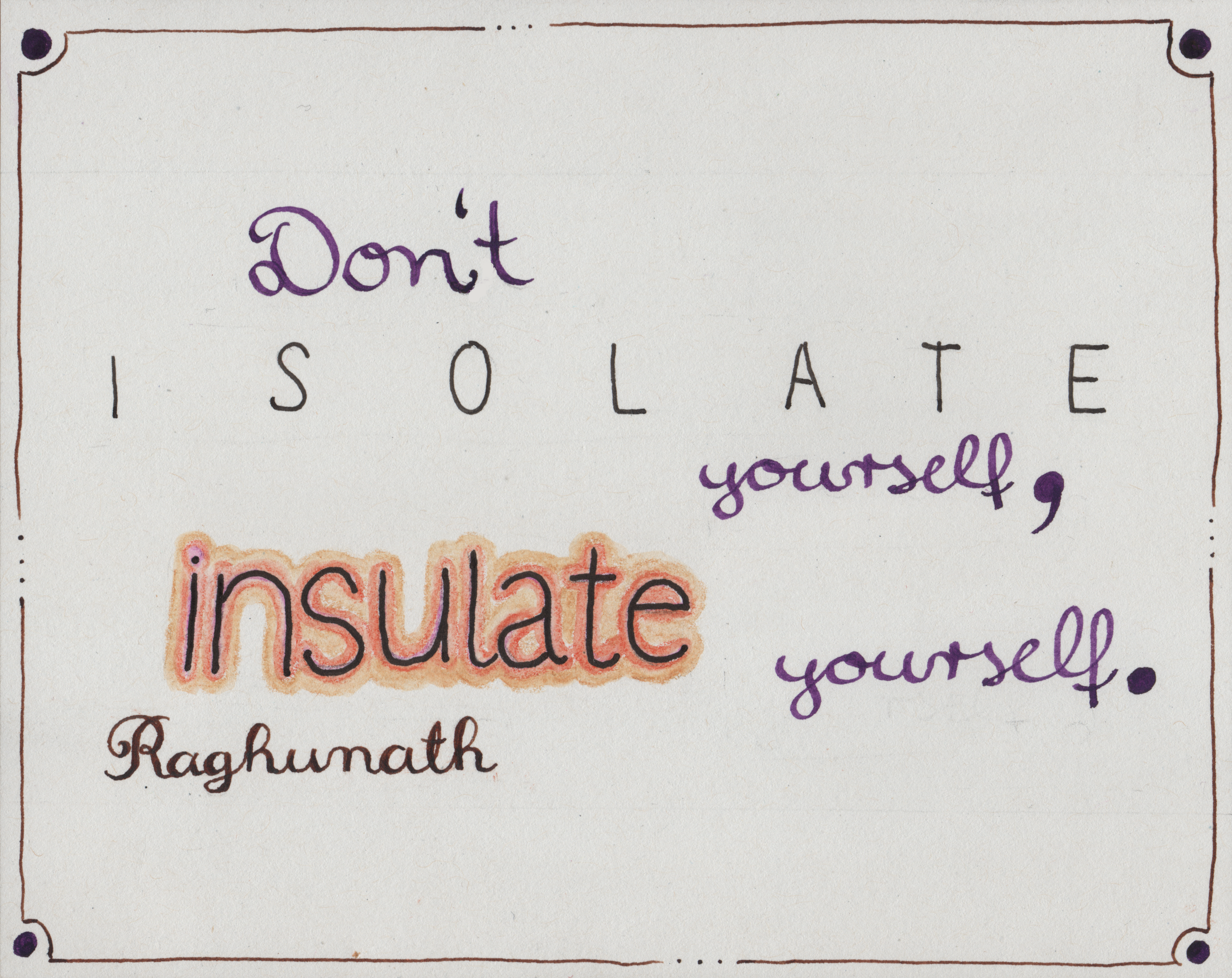How can I contribute less to polarising the world?
There are some things that I have “known” intellectually only for a long time. Some of them I have read or heard about and thought: “That makes a lot of sense.” Yet a lot of these things only really take effect on my life when they settle further down in my awareness and click into place on an emotional level. I am not always sure about how this happens and if I have any influence on it. Sometimes this process surprises me very quietly.
What does a “but” really mean?
One such realisation is this: Whenever we say something followed by a but, we cancel what was said before. For example “I am not XY, but…” or “I do like XY, but…” Often we do not actually mean to cancel the XY. In other cases the “but” gives away what we really would have liked to say. Either way, this does not exactly establish a solid relationship or boost an existing one. And our relationships are what communication is ultimately about.
One easily feasible alternative was my takeaway from an interesting talk. Whenever you feel the impulse to say “yes, but”, try saying “yes, and” instead or maybe “yes, at the same time”. This recognises what the other person and I have in common instead of emphasising our differences. Back then, I thought this was very plausible and mentally helpful and planned to use it in conversations just to see what would happen.
Living in polarising times
Then came the pandemic, and it cannot be just me who notices a lot of polarisation and actual as well as apparent contradictions. So many fierce debates, so many relationships in danger of breaking over different world views.
In my coaching training I was deeply affected by a method called the Tetralemma. It is designed to loosen emotional and mental blockages that seem to prevent a decision. Two apparently opposing objects, situations or stances are repeatedly circled around, compared and combined in a way that on a meta level creates a new perspective that excludes neither the one or the other and feels surprisingly relieving.
Sounds like Buddhist philosophy? That’s because it is. Funnily enough, my usual reaction to anything Zen is to not want to invest too much of my time and energy in it. So what? Not this but also not that? And how am I supposed to not do this “Not”? And also not want to not do it? Without not doing nothing? This way of thinking exhausts the cognitive parts of my brain. Which it is meant to and if I do not pay attention for long enough, this method really works 😉
The Zen of Douglas Adams
Ot to put it another way: It is all a bit like the instructions on how to learn to fly in the five-volume Hitchhiker trilogy by Douglas Adams.
“The Guide says there is an art to flying”, said Ford, “or rather a knack. The knack lies in learning how to throw yourself at the ground and miss.”
Most of us would think it to be an amazing feat to distract the thinking brain effectively for the time it takes to fly past it. Arthur Dent, the novel’s protagonist, actually does learn to fly, even if not intentionally. He misses the ground when he stumbles trying to escape a monster, because at the right moment he is distracted by a piece of luggage he lost at the other end of the galaxy a few years ago.
On the 2nd of February I signed a contract with myself for the coming year 2022. One part of it was the promise to keep an awareness for “yes but” situations in my day-today life and switching the phrase to “at the same time”. In the beginning this was a bit like using training wheels, at the same time the internal effect was fascinating. It is a bit like sliding two transparent images on top of each other. Both images can be clearly discerned and at the same time they add up to something new. They merge and at the same time neither of them dissolves into the other. Both can exist and neither is arbitrary.
Where is this long lost piece of luggage when we need it?
So how can I make such a helpful realisation percolate into deeper layers of my consciousness or even click into place? It seems that one part of the trick might be to be as unintentional as possible, another one of my specialities. At the same time, it helps to practice an attitude that appreciates simultaneousness, as well as has a clear view on where whateverism begins. A view on which opinions and behaviours are outside of what we will accept as respectable.
The clearer we are about our boundaries, the more thoroughly we define and know our own values and positions, the bigger and softer a space we can afford others or also the apparent fractures and contradictions within our own Inner Team. And the more enriching the simultaneousness can be. Since going through the Tetralemma process a few times, both as a coach and a coachee, some aspects of my personality, the ones who are less strictly stuck to the thinking mind, have definitely caught the bug.
And one day I will give the advanced Tetralemma steps a go in those “yes but” situations: “Neither of these” and “not even this”. One day when I am really feeling up to a bit of Zen. Until then, the “at the same time” approach will make my life a lot easier.
What do you think?
What are your experiences with the phrases “yes and” or “yes but”? Have you used the Tetralemma method yet? How do you usually handle real or apparent contradictions? And how do you help realisations trickle down from the cognitive level so they anchor in your emotional consciousness from where they can really affect your life?


